FLAT 10% OFF ON YOUR FIRST ORDER. USE IVER10
Maxiflo Inhaler
Price range: $48.00 through $180.00
Maxiflo Inhaler is a combination medication designed for the long-term management of asthma and Chronic Obstructive Pulmonary Disease (COPD). It contains Formoterol, a long-acting bronchodilator that relaxes airway muscles, and Fluticasone Propionate, a corticosteroid that reduces lung inflammation. Together, these ingredients help keep airways open, reduce symptoms like wheezing, coughing, and chest tightness, and improve overall lung function. Maxiflo is not meant for quick relief but for daily use to prevent worsening of respiratory symptoms and to improve quality of life. Proper inhaler technique and consistent use as prescribed are essential. Side effects may include throat irritation, headache, and palpitations, which usually subside over time. Always rinse your mouth after use to prevent infections. Consult your healthcare provider before use during pregnancy or breastfeeding.
- Buy 2 and get Flat 15% Off. Use B2SAVE15
- Buy 3 and get Flat 20% Off. Use B3SAVE20
Maxiflo Inhaler – Long-Term Control for Asthma and COPD
Maxiflo Inhaler is used for the treatment of asthma and Chronic Obstructive Pulmonary Disease (COPD). It helps relax the muscles in the airways, reduces inflammation, and improves breathing. This inhaler is not a quick-relief inhaler; it is intended for long-term, regular use to manage symptoms and prevent breathing problems from worsening. The medicine must be taken as prescribed and should not be stopped suddenly, even if symptoms improve.
Uses of Maxiflo Inhaler:
- Asthma (wheezing, shortness of breath)
- Chronic Obstructive Pulmonary Disease (COPD)
Benefits of Maxiflo Inhaler:
- Keeps airways open by relaxing bronchial muscles
- Reduces airway inflammation
- Improves lung function and breathing
- Reduces symptoms such as wheezing, chest tightness, and coughing
- Allows for improved daily activity in patients with COPD or asthma
How Maxiflo Inhaler Works?
Maxiflo Inhaler is a combination of two medications:
- Formoterol: A long-acting bronchodilator that relaxes airway muscles and widens airways.
- Fluticasone Propionate: A corticosteroid that prevents the release of substances causing inflammation in the lungs.
Together, these components help in making breathing easier and reducing long-term symptoms of respiratory conditions.
How to Use Maxiflo Inhaler?
- Shake the inhaler well before each use.
- Breathe out fully, place the mouthpiece in your mouth and start to breathe in slowly.
- As you begin to inhale, press the inhaler once to release the medicine.
- Hold your breath for about 10 seconds, then breathe out slowly.
- Repeat for the number of puffs prescribed.
- After use, rinse your mouth with water and spit it out.
Follow your doctor’s instructions exactly. Do not stop the medication even if you feel well.
Side Effects of Maxiflo Inhaler:
Most side effects are mild and go away with time. Contact your doctor if they persist or worsen.
- Headache
- Cough
- Upper respiratory tract infection
- Nasopharyngitis (throat and nasal inflammation)
- Sinus inflammation
- Stomach discomfort
- Tremors
- Palpitations (fast heartbeat)
- Voice change or hoarseness
Rinsing your mouth after inhalation helps reduce throat irritation and fungal infections.
Safety Advice:
- Alcohol: Unsafe. Do not consume alcohol while using the Inhaler.
- Pregnancy: Consult your doctor. Limited human data; possible risk to the unborn baby.
- Breastfeeding: Consult your doctor. Limited data; potential risk to the nursing infant.
- Driving: No known interactions; use caution if dizziness occurs.
- Kidney/Liver: No specific precautions, but inform your doctor if you have any disease related to these organs.
Important Notes:
- Do not use Maxiflo Inhaler during a sudden asthma attack. Use your quick-relief inhaler instead.
- Use this inhaler daily as prescribed for long-term control.
- Monitor and avoid asthma/COPD triggers (smoke, allergens, cold air, etc.).
- Consult your doctor immediately if breathing worsens or if you need your rescue inhaler more frequently than usual.
| Strength | 125 mcg, 250 mcg |
|---|---|
| Pack Size | 1 Inhaler, 2 Inahler, 3 Inhaler |

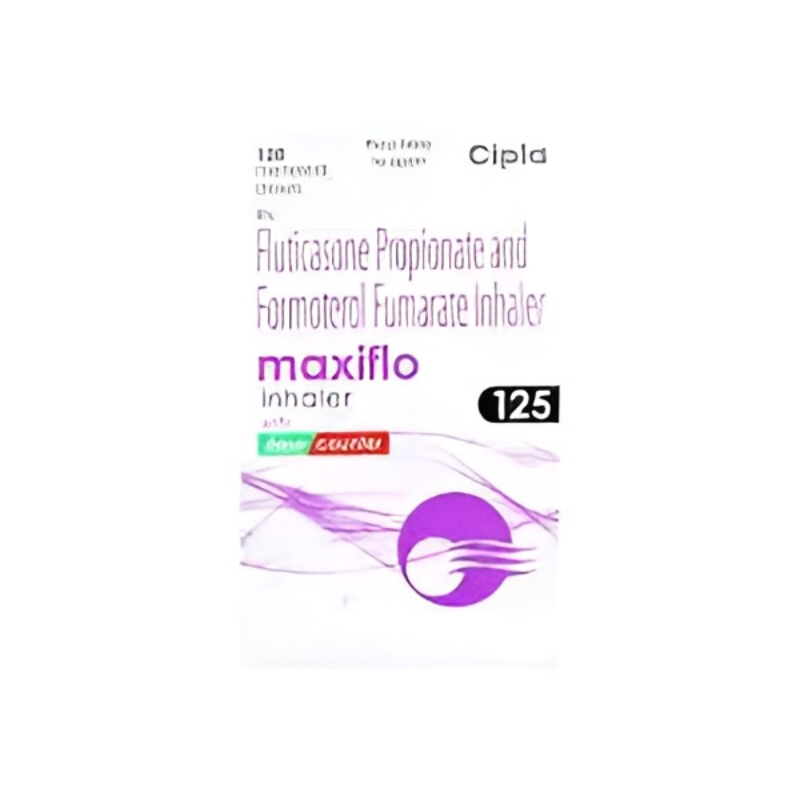

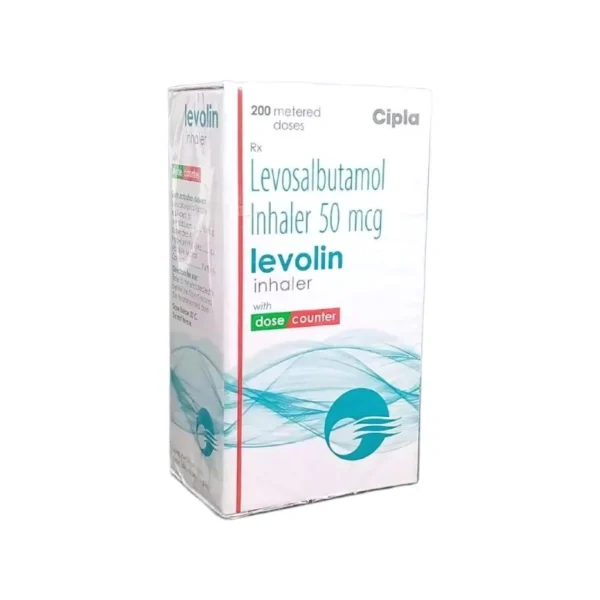

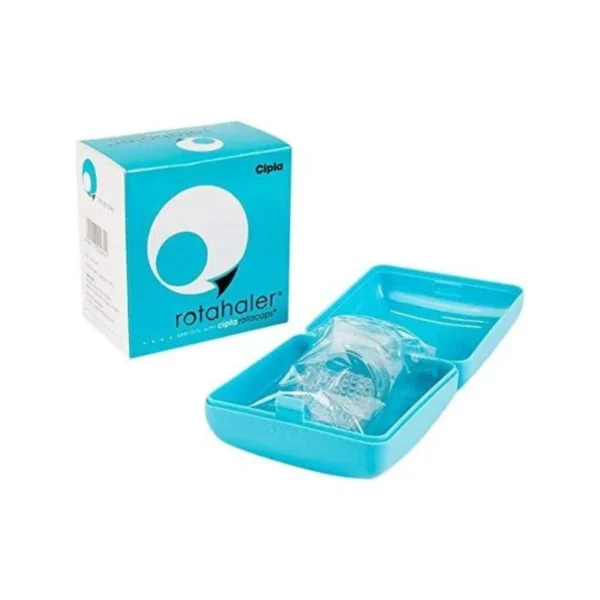

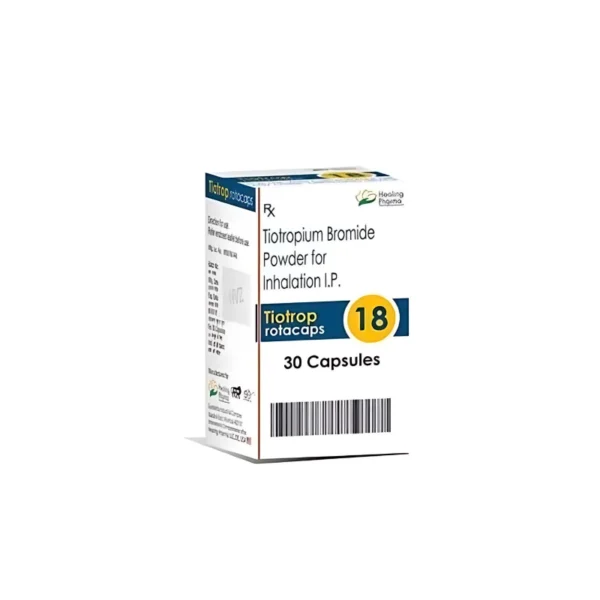
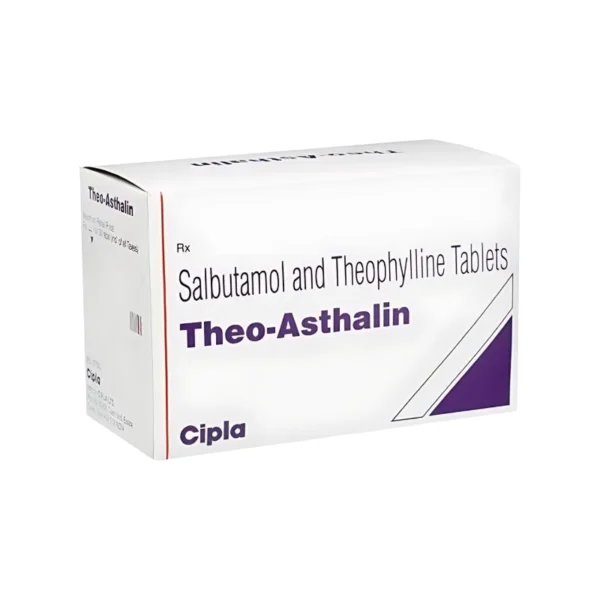
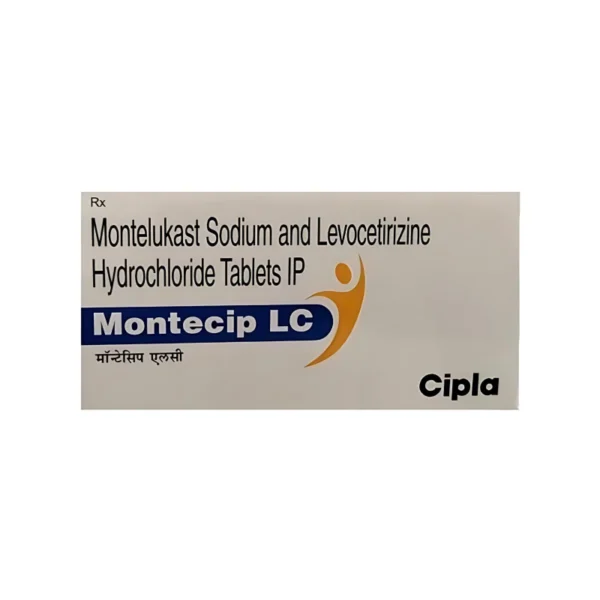
Reviews
There are no reviews yet.